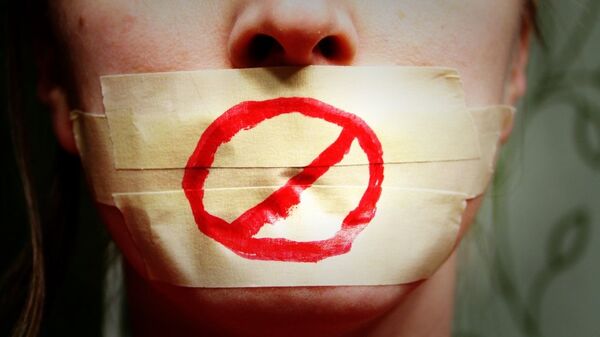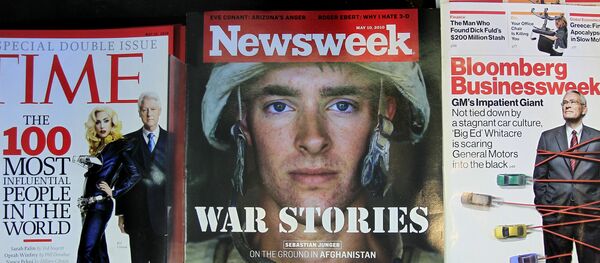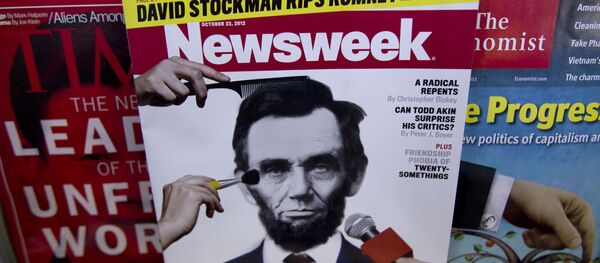On Thursday, defeated US Democratic presidential candidate Hillary Clinton warned about the dangers of fake news. In a call for censorship, Clinton insisted that leaders in both the private and public sectors needed to aggressively expand their efforts to crack down on alleged fake news sites — necessarily involving independent and alternative media — in order to protect democracy in the United States.
US analysts reacted with alarm to possible congressional allocations for State Department and other bureaucrats to determine what is fake news, especially given the fact that the now discredited corporate media, in collusion with the establishment, have knowlingly spread fake news for years.
Grosscup pointed out that the US corporate mainstream media had systematically disseminated fake news on behalf of both, the US government and big business for generations.
"As powerful corporate and government institutions long in the business of ‘fake news’ on behalf of powerful people and institutions, the hypocrisy and political nature of their effort [to accuse independent news sites] is self-evident," Grosscup said.
The US government and major corporations had constantly sought to discredit or make invisible "non-establishment" news outlets and investigative journalists especially of the political Left, Grosscup recalled.
The new blacklists went one step further in narrowing the scope of "responsible journalism" by institutional fiat, Grosscup explained.
"Unlike fake news lists produced by individual citizens, due to their corporate/government power base, these essentially secret ‘official black lists’ have instant credibility to many citizens," he warned.
The new blacklists now being circulated were products of powerful self-anointed guardians of constitutional freedoms and so-called "responsible journalism" who had long sought to control critical discourse, Grosscup observed.
"Their effect is immediate and unless challenged, will further escalate the assault on what is left of North American democracy," he predicted.
Pittsburgh University Professor of International Affairs Michael Brenner recommended that clear thinking and sensible US policy on the fake news issue should be based on some simple premises:
"Social media, in functional terms, are no different from the telephone. They are a neutral instrument that should be treated as a public utility," Brener stated.
"If party 'X' doesn't like the communications they receive, they should have the means to shut it off [through] unlisted phone numbers [or] putting down the receiver," Brenner said.
It was up to public authorities to determine whether illegal activity had taken place — not Facebook owner Mark Zuckerberg or any other party, Grosscup cautioned.






